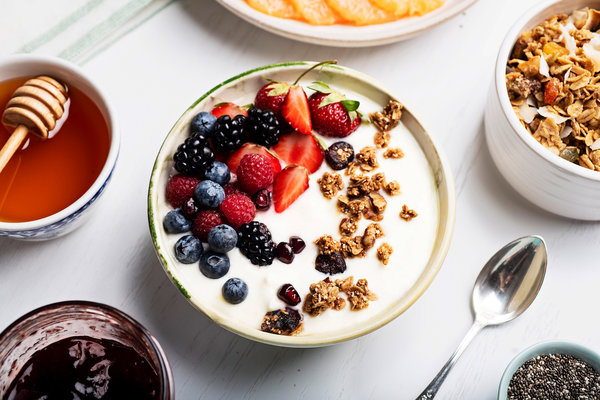
Did you know that human digestive tracts have about 300-500 different species of bacteria inside them? Some microorganisms are bad, but others are healthy and necessary in order to maintain a healthy body. How do we make sure we are getting enough of the “right” type of bacteria? Well first, lets take a look at the possible warning signs that can arise from an unhealthy gut microbiome, and what foods to avoid.
A gut that has too much harmful bacteria and not enough good bacteria may show itself by giving us gas, bloating, diarrhea, constipation, or heartburn. Weight loss can be caused by small intestine bacterial overgrowth, or SIBO. SIBO results in poor absorption of fats, carbohydrates and proteins. Bile salts, which are normally needed to digest fats, are broken down by the excess bacteria in your small intestine, resulting in incomplete digestion of fats, causing diarrhea. Weight can also result from poor gut health. Insulin resistance or an overwhelming urge to overeat can be caused by decreased nutrient absorption. Those with unbalanced bacteria in the gut may also experience insomnia and chronic fatigue. Gut health may also cause food intolerances and skin irritation, leading to conditions such as eczema.
Research, including one study we found, points to rich diets that are full of unprocessed foods from plants and animals being associated with a healthy and beneficial gut microbiota. The same study also found that genetics were only a minor player in gut health, and that the food the participants ate were most important. They found links between diets full of high processed foods with added sugars and salt to microorganisms associated with obesity, cardiovascular disease, and type 2 diabetes.
Making a few lifestyle changes can greatly improve your gut health.
Whole foods, and food diversity. This is what you should remember if you are aiming to improve the balance of bacteria in your gut and be overall more healthy! Fruits and veggies are the best sources of nutrients for this, as they are high in fibre and prebiotics. Fibre can’t be digested by your body, but that’s what certain bacteria can do for it; when it digests the fibre, this “good” bacteria can grow. Prebiotics are foods that promote the growth of beneficial microbes in the gut.
Fermented foods, particularly plain, natural yogurt, can benefit the microbiota by enhancing its function and reducing the abundance of disease-causing bacteria in the intestines. Whole grains are also a good way to help improve gut health. Whole grains are carbs that are not absorbed in the small intestine, but instead make their way to the large intestine, where they are then broken down by the microbiota to promote the growth of certain beneficial bacteria. Finally, eating foods rich in polyphenols is a good idea. Polyphenols cannot be fully digested by human cells; gut bacteria in the colon breaks them down fully. Polyphenols are plant compounds that have many health benefits, including reductions in blood pressure, inflammation, cholesterol levels and oxidative stress. Cocoa, dark chocolate, grape skins, green tea, almonds, and blueberries are just a few foods you’ll want to reach for to get these benefits!
Should I take probiotic supplements?
Good question! It looks like probiotics do not significantly alter the composition of the microbiota in healthy people. But when it comes to sick people, there is evidence that probiotic supplements may improve microbiota function and help restore the microbiota to good health. So if you’re struggling health wise and dealing with an unbalanced gut microbiome, you may find that probiotic supplements may be worth trying.
Sources: https://www.healthline.com/health/gut-health https://www.healthline.com/nutrition/improve-gut-bacteria#TOC_TITLE_HDR_10 https://www.gutmicrobiotaforhealth.com/why-the-quality-of-your-diet-is-the-best-recipe-for-a-healthier-gut-microbiota-and-better-health/
Leave a Comment
You must be logged in to post a comment.



0 Comments